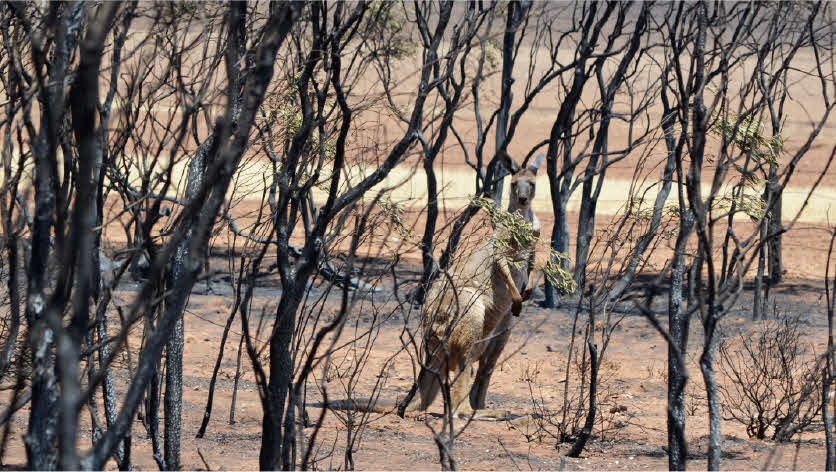
With much of south-eastern Australia impacted by bushfires this summer, many have questioned what impact long-term exposure to bushfire smoke may have on humans and animals. Even in major centres spared direct fire damage such as Sydney, air pollution due to bushfire smoke has been at hazardous levels for weeks this summer.
The composition of bushfire smoke depends on several variables including the fuel being burnt, the temperature of the fire and wind conditions. Particulate matter, which includes any solid or liquid suspended particles in the air, tends to be very small in bushfire smoke.
This particulate matter not only scatters light and reduces visibility (leading to the blood-red and black day-time skies witnessed during the fire emergency), but it is so small it can enter the alveoli of the lungs. Other pollutants in bushfire smoke include carbon monoxide, benzene and formaldehyde.
Short-term impacts of bushfire smoke
Short-term impacts of bushfire smoke include eye, nose and throat irritation. More serious illness resulting from short-term exposure include bronchitis, reduced lung capacity and exacerbation of pre-existing respiratory and cardiovascular disease. Animals who are very young, geriatric, pregnant or have pre-existing diseases are most at risk of suffering adverse effects from short-term exposure to bushfire smoke.
What are the long-term impacts?
The long-term impact of exposure to secondary cigarette smoke has been well established in several animals. An increased risk of oronasal and respiratory tract neoplasia, as well as the development of chronic inflammatory respiratory disease, has been determined both experimentally and epidemiologically in animals such as guinea pigs, mice and dogs. However, the evidence for long-term adverse impacts of bushfire smoke in animals is generally lacking.
Epidemiological studies on human populations exposed to long-term bushfire smoke show a slightly increased risk of neoplasia and chronic respiratory disease development. However, studies examining career firefighters showed only a three-fold increase in the risk of developing lung cancer, even with lifetime exposure. There are no epidemiological studies currently available which evaluate the health impacts of long-term bushfire smoke exposure in domestic animals.
The impact of long-term bushfire smoke exposure depends largely on the level and overall duration of the smoke, individual susceptibility, age and presence or absence of pre-existing respiratory or cardiovascular disease. The World Health Organization considers no level of smoke exposure to be safe, so steps to reduce exposure should be taken by all individuals, but particularly those considered to be at-risk.
Advice to pet owners
Pet owners should be encouraged to take steps to limit their pet’s exposure to smoke during periods of high pollution. Moving animals indoors, keeping houses closed with aircon set to recycle and avoiding exercising during high pollution periods are sensible steps all pet owners should take.
Birds are particularly sensitive to air pollution, so consideration should be given to moving birds indoors if possible. Outdoor animals such as livestock and horses should not be exercised during periods of high pollution.
Alice Roe
More Articles
Small Animal
What is pancreatitis?
National
Switching lanes: from clinician to...
Unusual & Exotic Pets & Avian
What is an avian veterinarian?
Small Animal
Dangerous dogs – a sensible solution
Bushfire appeal - Veterinary Benevolent Fund
As bushfires continue to ravage many parts of Australia, our veterinarians are being called upon to assist and provide essential services.
Donate to the AVA Benevolent Bushfire response fund to assist vets financially impacte and those doing pro-bono work to assist injured wildlife and animals.

